Incentive

Canada
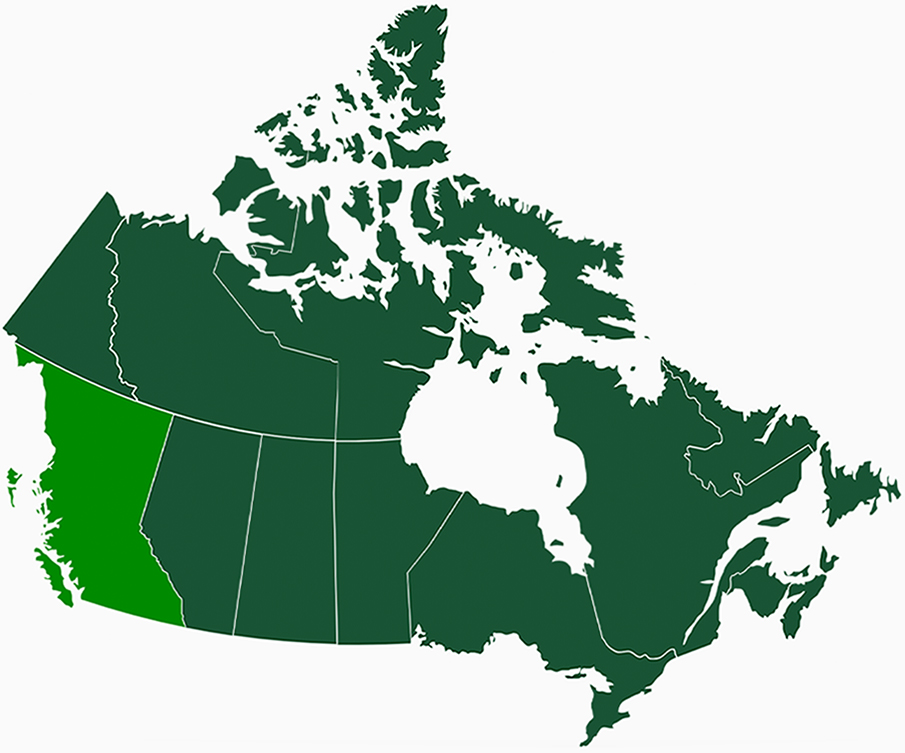
British Colombia
British Columbia (B.C.) offers a provincial rebate up to $8,000 to offset the initial cost of an electric vehicle. This rebate can be paired with federal incentives, resulting in savings exceeding $8,000 on an electric vehicle purchase. As a leading province in advancing electric transportation, B.C. has also enhanced the rebate for EV chargers. Make sure to explore the listed municipalities and cities below for further available rebates.
Discover more about the rebates B.C. offers for electric vehicle purchases here.
1. BC Hydro’s Rebates for Electric Vehicle Charging at Home and in the Workplace
The B.C. government, in collaboration with BC Hydro and FortisBC, presents the CleanBC plan to subsidize electric vehicle (EV) charger costs under the Go Electric initiative.
For Single-family Residences:
Homes with individual garages or designated parking can receive up to 50% off, capping at $350, on Level 2 EV charger installation and procurement.
For Apartment & Condo Complexes:
Obtain up to $3,000 for devising an EV Ready plan, aiming for at least one EV-ready parking spot per unit.
Avail up to $600 per parking space, capped at $80,000, for setting up the needed electrical infrastructure.
Get up to $1,400 per charger, capped at $14,000, to implement the EV Ready plan by buying and setting up Level 2 networked EV chargers.
Additionally, a separate rebate offers up to $2,000 per charger, capped at $14,000, for the setup of Level 2 networked EV chargers in residential parking areas.
More about apartment and condo rebates and application process.
For Workplaces:
Establishments can apply for up to four distinct locations.
Secure up to $2,000 per charger, capped at $14,000, to implement Level 2 networked EV chargers for employees. This requires prior approval from BC Hydro.
Special Provisions for Indigenous Communities:
Secure up to 75% off on EV charger expenses, with specific caps:
- Single-family homes: Up to $750.
- Apartment and condo complexes: Up to $4,500 per charger.
- Workplaces: Up to $4,000 per charger.
Eligibility Criteria for Home EV Charging Stations (Level 2):
Should be procured and set up post-September 26, 2019.
Must have cUL, cETL, or CSA certification and be approved for sale in Canada.
Should possess a standard SAE J1772 connector, with Tesla wall connector being the only exception.
The product must be new, unused, or refurbished.
View the comprehensive list of qualified home charging stations.
For an in-depth understanding of the CleanBC – Go Electric strategy, refer to the official website of the British Columbia Government.
2. FortisBC’s Rebates for Electric Vehicle Charging at Home and in the Workplace
FortisBC is stepping up to promote greener transportation alternatives like electric vehicles (EVs) by providing BC inhabitants with incentives to buy and set up EV charging points in homes, multi-residential properties, and workplaces. These rebates are exclusively for FortisBC residential power consumers and municipal power users in Grand Forks, Penticton, Summerland, or Nelson Hydro.
Here’s what’s on offer:
For Individual Residences:
Homes, including mobile ones anchored permanently, along with side-by-side duplexes, townhouses, or row houses with individual power meters and personal parking, can avail up to 50% discount, capping at $350, on costs related to Level 2 EV charger procurement and installation.
For Older Multi-residential & Workplace Structures:
Buildings built prior to August 31, 2020 (new ones excluded) can get up to 50% off on related expenses, with up to $2,000 for each station, and an overall limit of $14,000 for each claim.
Level 2 EV Chargers Should Meet the Following Standards:
Procurement and installation should have happened after September 26, 2019.
Certified by cUL, cETL, or CSA and approved for Canadian usage.
Must have a standard SAE J1772 connector, though Tesla wall connectors are the sole exception.
They should be either new, unused, or certified refurbished.
Review the comprehensive list of qualified home charging stations.
To claim your incentive, submit an online application on the FortisBC platform within three months of setting up your EV charger.
For additional details, please refer to the official FortisBC site.
3. Plug In BC’s Specialty Use Vehicle Incentive (SUVI) Program
Plug In BC’s “CleanBC Go Electric Specialty Use Vehicle Incentive” is an initiative under BC’s overarching CleanBC Go Electric Program. Backed by the Ministry of Energy, Mines and Low Carbon Innovation and overseen by the Fraser Basin Council Society, this incentive is designed for specific vehicles like cargo e-bikes, electric motorbikes, utility trucks, and buses.
To be eligible for the incentive, participants should either possess a legitimate B.C. business license or be affiliated with a non-profit or public entity.
The incentive covers a range of vehicles including:
Electric motorcycles
Low-velocity vehicles
Cargo electronic bikes
Medium and heavy-duty road vehicles
Specialty utility vehicles
For a detailed list of vehicles that qualify and the associated rebates, you can check out: SUVI Eligible Vehicles – Plug In BC.
For more insights, head to Plug In BC’s official website.
4. Rebates for Home EV Charging Stations in the Regional District of Nanaimo, British Columbia
Potential Savings: Up to $150 In collaboration with the Province of British Columbia and BC Hydro, the Regional District of Nanaimo is offering an enhanced rebate. Qualified residents installing a sanctioned residential Level 2 EV charging system at home may be entitled to a rebate reaching $500.
BC Hydro will handle all rebate applications. For more details, click here.
For additional information, navigate to the Regional District of Nanaimo’s official website.
5. Rebates for Electric Vehicle Charging Stations at Residences in Saanich, British Columbia
For single-family homes: Rebates up to $350
For apartments/condos: Rebates up to $1,400 per charging unit
For workplaces: Rebates up to $2,000 per charging unit
In collaboration with the Province of British Columbia and BC Hydro, the District of Saanich is enhancing its rebate offer. Homeowners installing a certified level 2 charging station can get a rebate of up to $350, while apartment and condo dwellers can benefit from up to $1,400 per unit. Workplaces can avail themselves of up to $2,000 per charger.
For more details, please visit the Saanich official website.
6. Rebates for Residential Electric Vehicle Charging Stations in Victoria, British Columbia
Condo/Apartment Rebate Amount: Up to $2,000 Residents of Victoria, British Columbia, can enhance their savings by merging the provincial level 2 EV charger rebate for apartments and condos with an additional benefit of up to $2,000 from the city.
No separate forms are needed for this additional rebate. Just apply for B.C.’s standard EV charger rebate, and if your installation address is within Victoria city limits, the supplementary rebate will automatically be incorporated into your provincial grant.
Be informed that the funding pool is currently exhausted. Updates will be provided when more funds become accessible.
For further details, check out the City of Victoria’s official site or click here to apply directly for the home EV charger rebate.
7. Rebates for Electric Vehicle Charging Stations at Residences in Whistler, British Columbia.
Rebate for single-family homes: Up to $350
Rebate for apartments/condos: Up to $1,000 Workplace
Rebate: Up to $1,000 For those residing in the Resort Municipality of Whistler (RMOW), British Columbia,
There’s an opportunity to boost savings by integrating the provincial home EV charger rebate, single-family homeowners can receive an additional amount of up to $350.
Similarly, residents of multi-residential units like apartments and condos can enjoy a top-up of up to $1,000. Furthermore, workplaces within RMOW boundaries can avail a rebate enhancement of up to $1,000 for their EV chargers.
To avail these benefits, there’s no need for a distinct form. Just process your application through B.C.’s primary EV charger rebate program. If your installation location falls within RMOW, the complementary rebate will be added to your provincial incentive automatically.
For more insights, navigate to the Resort Municipality of Whistler (RMOW)’s official page or initiate your rebate application directly here.
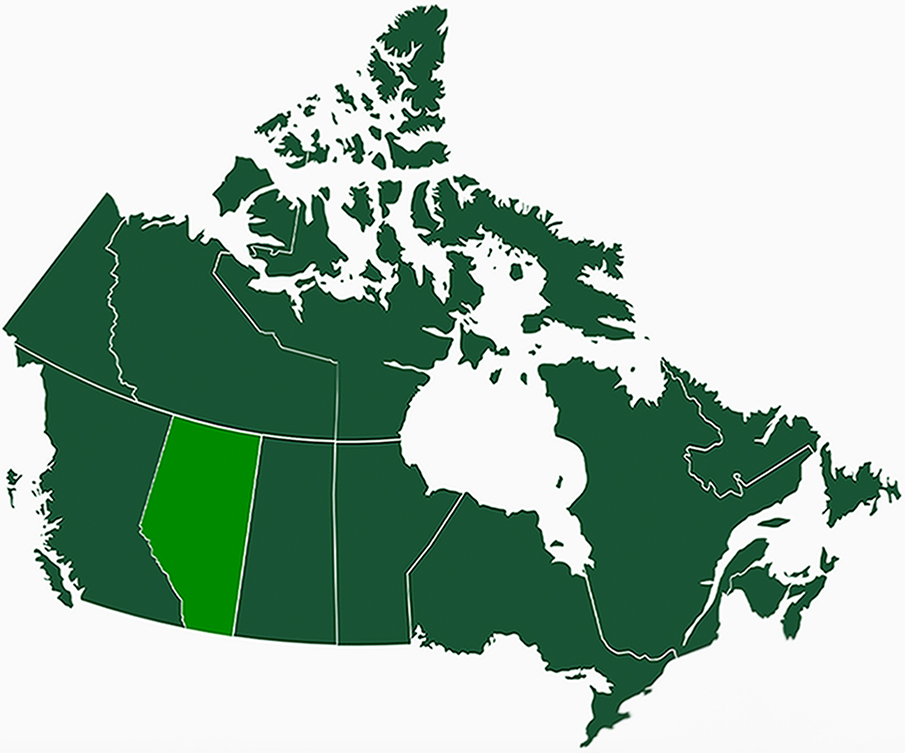
Alberta
Alberta is shifting its focus towards eMobility and the economic prospects it offers. Explore the valuable rebate schemes available for homeowners, business proprietors, and local governments below.
1. Municipalities Electric Vehicle Program
While this isn’t a scheme directly supporting home EV charger financing, the Municipal Climate Change Action Centre (MCCAC) offers a program aiding municipalities in their shift to eMobility. MCCAC assists Alberta’s municipalities in decreasing energy expenses, cutting down on greenhouse gas emissions, and bolstering community resilience, ensuring long-term energy savings and financial benefits.
In essence, the Electric Vehicles for Municipalities Program grants municipalities up to $300,000 for buying diverse electric vehicles, setting up charging stations, and conducting feasibility assessments.
For additional details, check out the MCCAC website!
Electric Vehicle Charging Initiative
This initiative assists municipalities in setting up new chargers in public areas, streetsides, municipal properties, and for municipal vehicle fleets. The entire expenditure for buying and setting up a new charging station can be recouped, translating to:
A savings of up to $10,000 for every level 2 charger
A savings of up to $150,000 for each high-speed charger (DCFC)
To register, navigate to the program page using this link.
2. Canada-wide Zero-emission Vehicles (ZEV) Incentive
Residents of Alberta can also tap into federal programs that provide substantial incentives—reaching up to $5,000—for Canadians who purchase or lease qualifying zero-emission vehicles (ZEV). ZEVs encompass:
-
Fully electric vehicles
-
Hybrid electric plug-ins
-
Vehicles powered by hydrogen fuel cells
The rebates are structured as follows:
-
A $5,000 rebate is available for electric battery, hydrogen fuel cell, and long-range plug-in hybrid vehicles (with a battery capacity of 15 kWh or more).
-
Plug-in hybrids boasting a shorter range (battery capacity below 15 kWh) qualify for a $2,500 incentive.
For additional details, refer to the official website of the Government of Canada’s website.
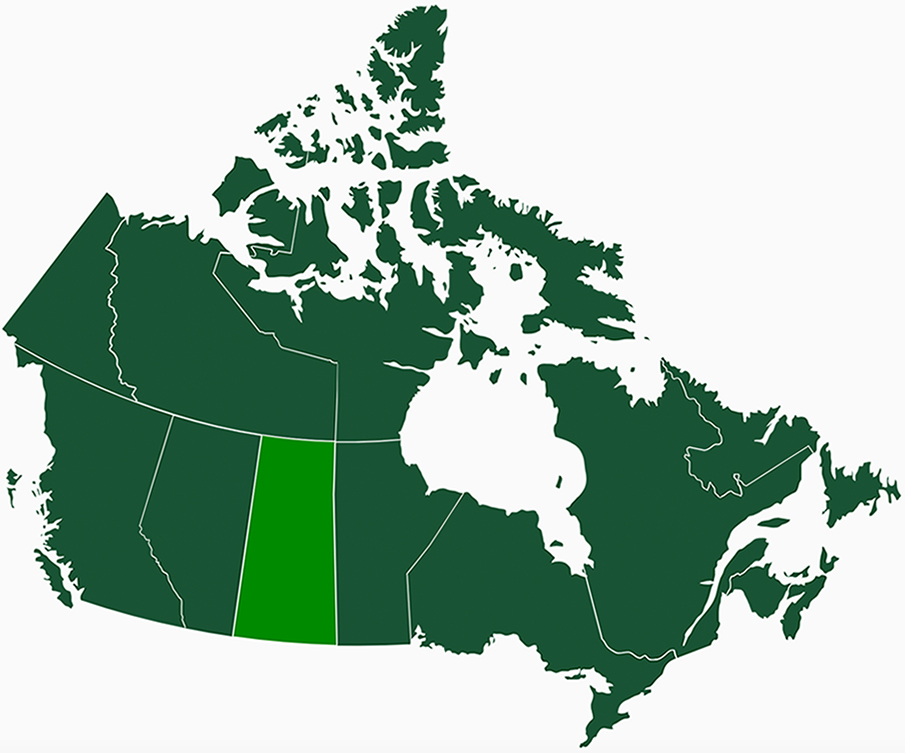
Saskatchewan
At the moment, Saskatchewan doesn’t provide financial support for acquiring and setting up home charging stations. Nonetheless, the Canadian Government’s iZEV initiative extends up to $5,000 in discounts when buying or leasing qualified zero-emission vehicles (ZEV). This reduction is directly reflected in the dealership’s sticker price upon acquisition or leasing.
The Canadian Government recognizes the subsequent as ZEVs:
Fully electric vehicles
Hybrid electric plug-ins
Hydrogen-powered vehicles
For a deeper understanding, check out the official website of the Government of Canada’s website.
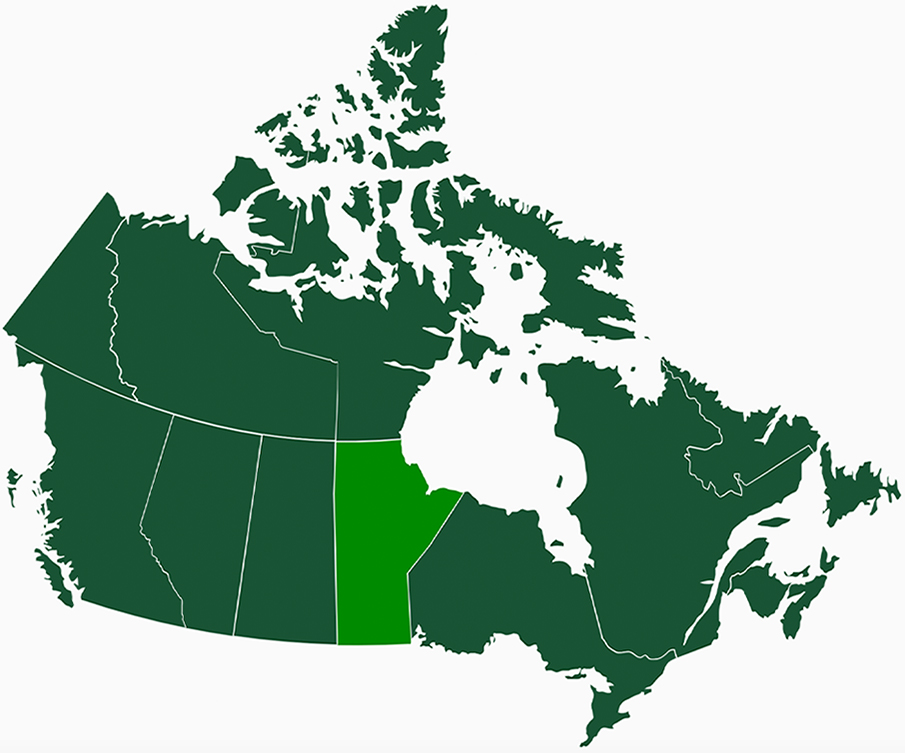
Manitoba
At the moment, Manitoba doesn’t offer provincial rebates for home EV charging stations. However, Level 2 chargers qualify for financing through the Home Energy Efficiency Loan.
1. Manitoba Hydro’s Home Energy Efficiency Loan
If you’re keen on enhancing your home’s energy efficiency, the Energy Efficient Home Loan provides a hassle-free and budget-friendly financing solution. This loan allows you to make eco-friendly improvements without any upfront payment, as the monthly installment will appear directly on your energy bill.
For EV chargers, the financing caps at $3,000, covering both the charger and its installation.
Eligibility criteria include:
The electric vehicle should be brand-new and solely for residential purposes.
The vehicle, whether electric or plug-in hybrid, must be registered in Manitoba.
The Level 2 charging station you purchase should be new and designated for residential use.
The charger should have a voltage rating limited to 208 or 240 V.
A professional electrician, with a valid electrical permit, must oversee the charger’s installation and connection.
The chosen Level 2 EV charger should hold certifications from ULC, CSA, or ETL.
Application Process
To start the application, engage with an approved Program supplier. They will assess the eligibility of your project and guide you through the loan application process.
For detailed insights and further information, head over to the Manitoba Hydro website.
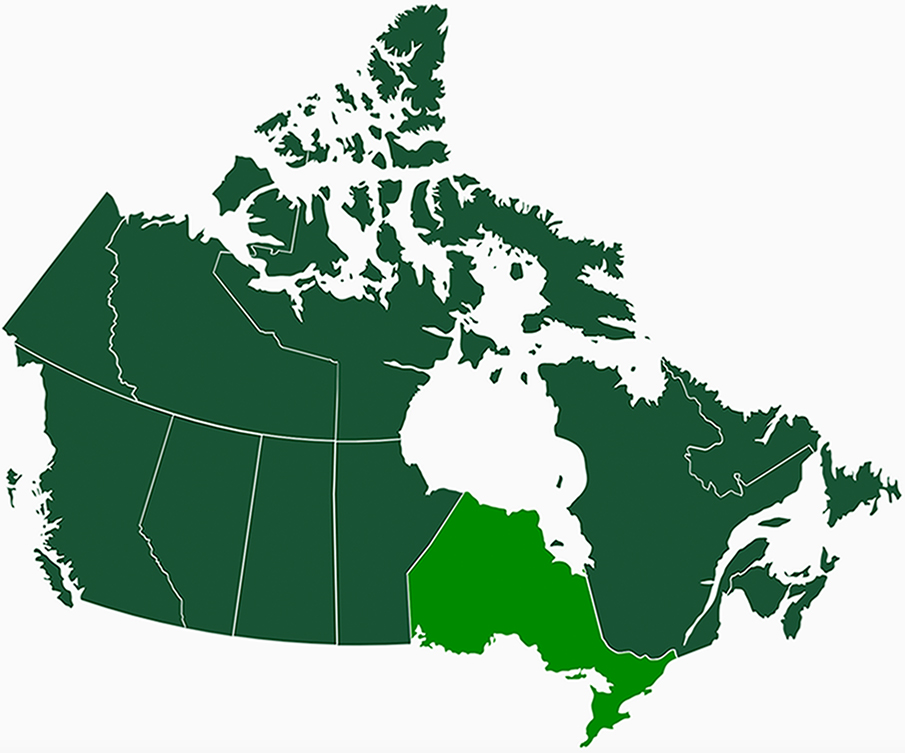
Ontario
Even though the Ontario government discontinued its provincial home EV charging station rebate program in 2018, numerous opportunities remain to avail savings when switching to an electric or hybrid vehicle, be it as an owner, renter, or seller.
1. Federal Zero-Emission Vehicle Initiative (iZEV)
Through the iZEV initiative, the Canadian government offers up to $5,000 off the purchase or lease of qualifying zero-emission vehicles (ZEVs). This reduction is directly reflected in the vehicle’s sticker price at dealerships.
A ZEV is defined as a vehicle capable of zero exhaust emissions. While it might have an internal combustion engine, it should be operable without it. Under this initiative, the following vehicle types are recognized as ZEVs:
Battery-electric
Plug-in hybrid electric
Hydrogen fuel cell
For additional details, please refer to the Government of Canada’s official website.
2. Used Electric Vehicle Discount Program – Plug’N Drive
Teaming up with the Clean Air Partnership, the charitable organization Plug’n Drive offers a $1,000 discount for buying used electric vehicles.
To avail of this offer, applicants need to:
Participate in an EV 101 seminar, a complimentary one-hour educational session, either at the Plug’N Drive Discovery Center or during an Electric Car Roadshow event. This seminar educates participants about the ecological and economic advantages of electric mobility.
Experience an electric car firsthand with a complimentary test drive, accompanied by an EV expert from Plug’N Drive.
Purchase a pre-owned electric vehicle within a year of attending the seminar and qualify for the $1,000 discount, provided terms and availability are met.
3. Incentive Program for Vehicle Scrappage
The Scrappage Benefit grants $1,000 for trading in your old gasoline vehicle and upgrading to a used electric one. This can be combined with the ongoing Pre-Owned EV Discount program, allowing potential savings of up to $2,000 when purchasing a used all-electric or hybrid electric vehicle.
To learn more, head over to the Plug’N Drive website.
4. Toronto’s Home Energy Loan Program (HELP) rebate for Home EV Charging Stations in Toronto, Ontario
While Toronto doesn’t offer specific grants for home charging stations, they do provide the Home Energy Loan Program (HELP). This initiative by the City of Toronto aids residents in enhancing their home’s energy efficiency and reducing costs.
With HELP, homeowners in Toronto can secure a low-interest loan of up to $125,000 for energy-efficient home enhancements.
The City funds the necessary enhancements, including level 2 home EV charging stations. Homeowners then repay the City via increments on their property tax bills.
To be considered for HELP, you must:
Own a standalone, semi-detached, or townhouse;
Receive consent from all property titleholders to join the program;
Ensure your city utility and property tax payments are up-to-date;
If you have a mortgage, get a written agreement from your mortgage provider*.
For additional details on the Home Energy Loan Program, check the City of Toronto’s official website.
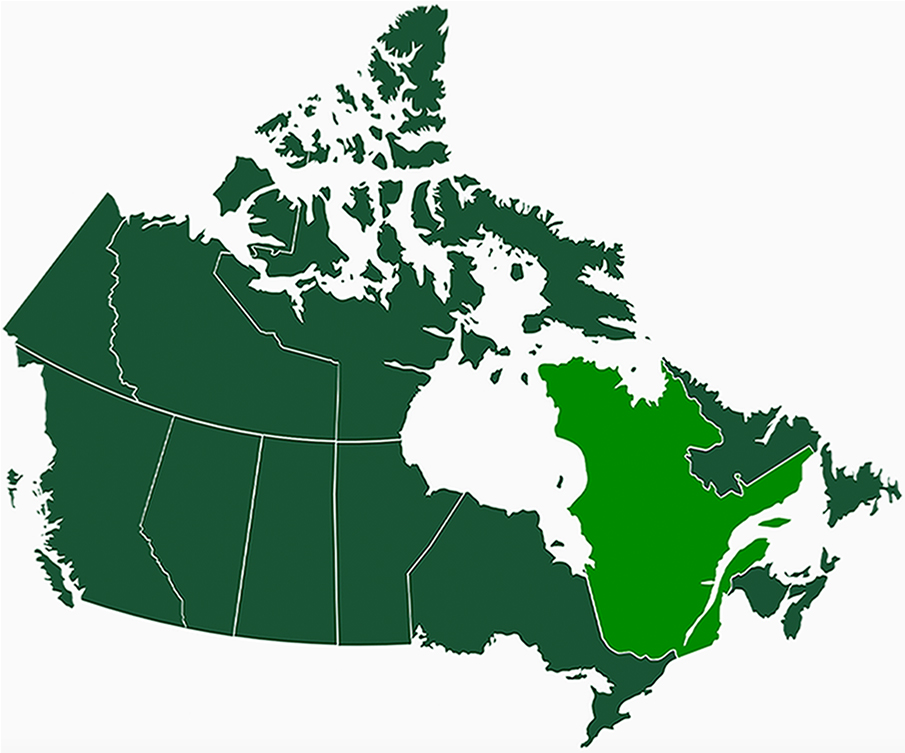
Quebec
The Roulez vert initiative was introduced by the Quebec Government in 2012, promoting the shift towards electric vehicles. Quebec residents can not only benefit from significant provincial rebates for home EV charging installations but also enjoy additional savings on EV purchases. Additionally, businesses can tap into lucrative workplace charging opportunities.Furthermore, many local municipalities supplement these offerings with their own incentives. Explore the list of cities and towns below to determine if your location is among them!1. The Roulez vert Program – Government of QuebecThe Government of Quebec’s Roulez vert initiative offers a range of EV rebates catering to individuals, businesses, municipalities, not-for-profit organizations, property owners, and real estate firms. These incentives make it easier to transition to electric vehicles and establish charging infrastructure. Furthermore, the Quebec government has extended the program’s duration, ensuring its availability until March 31, 2026.The Roulez vert Program presents specific EV incentives for these assets:
1. Level 2 EV Home Charging Station IncentiveReceive a $600 discount when you buy and set up a Level 2 EV charging system for your home. Submitting installation evidence is a mandatory step.For qualification in this incentive, the Level 2 home EV charging devices must:
- Be brand new.
- Obtain a certification from recognized entities like cUL, cETL, or CSA.
A detailed directory of sanctioned home EV chargers is accessible.For guidance on applying to the Roulez vert Program, click here.
2. Rebate for EV Charging Stations in Multi-Unit Buildings:The maximum financial assistance offered is capped at $5,000 per wireless charging point or per connector.Acquisition and Setup: Financial assistance for acquiring and installing charging stations in multi-unit residential complexes is based on the following:
- 50% of the qualifying costs OR
- $5,000 for each wireless charging station OR
- $5,000 for each connector in setups that support charging multiple EVs at once.
Leasing and Setup of an EV Charging Point: In case of leasing the charging station, applicants need to submit a lease agreement verifying adherence to the program’s terms, especially ensuring the charging station operates for at least three years. The financial support for leasing and installation in multi-unit residential buildings is:
- $500 for every wireless EV charging point OR
- $500 for each connector in stations that can charge several EVs simultaneously OR
- 50% of the approved expenses for setting up an EV charging point.
Please be aware: Changes to the application process Starting September 29, 2021, pre-approval applications will not be accepted. However, pre-approval applications sent in by October 4, 2021, will be reviewed, and eligible candidates will receive a notification.To understand the application process for the Roulez vert Program, click here.
3.Workplace Charging Station Rebates:For Charger Purchase and Installation:Eligible for 50% of costs up to:
-
- $5,000 for each wireless charger
- $5,000 for each connector (for chargers with multiple connectors)
For Charger Leasing and Installation:
-
- $500 for each wireless charger OR
- $500 for each connector PLUS
- 50% of qualified costs related to charger installation
The financial support is capped at $5,000 per wireless charger or $5,000 per connector.Important Update: Starting from September 29, 2021, pre-approval submissions are not being accepted. However, submissions made prior to October 4, 2021, will be reviewed and qualifying applicants will be notified. Due to an influx of applications, there might be delays in processing. Measures are being taken to fast-track the review process.For detailed insights on the Workplace Charging Station initiative, interested businesses, municipalities, and organizations can refer to the French version of this webpage.
4. Used Electric Vehicle RebateEligible used all-electric vehicles can receive a rebate up to $4,000.
Residential EV Charging Station Rebate in Berthierville, Quebec
Rebate Amount: $100
Berthierville’s city council, on March 2, 2020, introduced a $100 rebate for residents owning a residential property, supporting their move to install home charging stations for electric vehicles.
To qualify for this initiative, a few criteria must be met:
-
The property must be situated within Berthierville’s boundaries and serve as a residential establishment.
-
The EV charging station should be set up post-March 2, 2020.
-
The system should operate between 208 to 240 volts of electrical voltage.
-
An electrical contractor with a valid license from the Régie du bâtiment du Québec (RBQ) must handle the installation.
Details of the initiative can be found in:
-
Berthierville Rebate Program Link to the application form for the EV home charging station rebate in Berthierville.
Home EV charging station rebate in Coaticook, Quebec
Residents of Coaticook, Québec, can now benefit from a home EV charging station rebate. The City of Coaticook is generously providing a refund of up to $250 towards the expenses of procuring and setting up a charging station when installed by a certified master electrician.
For further information and details, click here.
Home EV charging station rebate in Dorval, Quebec
The City of Dorval is offering a generous rebate program. Under this initiative, you can avail a 50% rebate on the costs of purchasing and installing a level 2 home charging station for electric cars, with the maximum rebate amount capped at $500. This offer, which started on January 1, 2019, allows for one reimbursement per household.
To be eligible, you’ll need to submit both the purchase invoice for the charging station and the electrician’s installation invoice as proofs.
For the application process and more details:
Home EV charging station rebate in East Angus, Quebec
Residents of East Angus, Quebec have an opportunity to go greener with their transportation choices. If you’re considering an electric or plug-in hybrid vehicle, the City offers a $100 rebate towards the purchase of a level 2 home charging station. To be eligible, make sure you obtain a permit from the building and environmental inspector prior to the installation. This incentive has been actively supporting residents since April 1, 2019.
For further details and to apply:
Home EV charging station rebate in Granby, Quebec
In an effort to foster a sustainable environment and minimize its carbon footprint, the city of Granby has rolled out its Green Action Plan. This initiative is geared towards supporting the transition to electric vehicles. Under this plan, residents can avail a rebate covering 25% of the costs for buying and setting up a home EV charging station, with the maximum rebate being $250.
To apply or gather more information, please visit the Granby official website and access the application form for the home charging station rebate.
Home EV charging station rebate in Joliette, Quebec
Residents of the City of Joliette can benefit from an initiative promoting electric vehicle adoption. The city offers a rebate covering 25% of the costs associated with purchasing and setting up a home EV charging station, with the rebate capped at $250.
For further details and to apply, visit Joliette’s official website and access the application form for the home charging station grant.
Home EV charging station rebate in L’Assomption, Quebec
Available amount for condo owners & homeowners: $100 – $150
Available amount for multi-residential building owners: up to $450
In the Municipality of L’Assomption, rebates are available for eligible vehicle owners who install new, non-portable home EV chargers. Homeowners and condo owners can avail of a rebate ranging from $100 to $150. Specifically, condo owners can claim a $100 rebate with a co-ownership syndicate’s written confirmation, while individual households can receive up to $150. For multi-residential buildings, the rebate scheme offers $300 for properties housing six units (limit of 2 chargers) and $450 for those with seven or more units (limit of 3 chargers).
Visit L’Assomption’s official website for more details.
Home EV charging station rebate in Lavaltrie, Quebec
Rebate Offer: $150
Residents of Lavaltrie can avail of a $150 rebate for installing a home EV charging station. Each private home is eligible for one rebate, while multi-unit buildings can receive subsidies for up to five stations. Important: This program commenced on January 1, 2020, but has a six-month retroactive window. Thus, installations and purchases made after July 1, 2019, qualify for this grant.
-
Click here to apply for the Lavaltrie home EV charging station rebate.
Home EV charging station rebate in Magog, Quebec
Rebate Offer: $250
In a bid to curb greenhouse gas emissions within its borders, the City of Magog is championing the adoption of electric vehicles. To this end, it offers local residents a $250 rebate for each home EV charging station.
-
Click here for the Magog home EV charging station rebate application.
Home EV charging station rebate in Marieville, Quebec
Rebate Offer: Up to $250
Residents of Marieville who own a residential property can avail a grant that funds 25% of the expenses for purchasing and setting up a home EV charging station, with a cap of $250 per station.
Home EV charging station rebate in Mont-Joli, Quebec
Rebate Offer: Maximum $200 For homeowners and condominium owners, the City of Mont-Joli is providing a grant that covers half the cost of an electric vehicle charging station, with a maximum rebate of $200.
Visit the City of Mont-Joli’s official website.
Home EV charging station rebate in Nicolet, Quebec
Residential Rebate: $500
Commercial Rebate: $500
In its bid to champion green initiatives and curtail greenhouse gas emissions, the City of Nicolet instituted an environmental policy in 2008. A key aim of this policy is to promote energy conservation in transportation and infrastructure.
To achieve this, the City actively encourages businesses, organizations, and homeowners to set up electric vehicle charging stations. Both homeowners and commercial property owners within Nicolet’s jurisdiction can avail of a $500 rebate upon installing a new Level 2 charging station.
For further details, please check Nicolet’s Official Website.
Home EV charging station rebate in Sherbrooke, Quebec
Available amount: $300
For those investing in an EV charging station, Hydro-Sherbrooke provides up to a $300 rebate, which also includes the installation costs by a qualified master electrician.
For more details, visit: Sherbrooke’s Official Website.
Home EV charging station rebate in Thetford Mines, Quebec
If you’re in the market for a home EV charging station, the city is providing rebates up to $250. However, it’s essential to act swiftly as the rebates are given on a first-come, first-served basis.
For further details, please check: Thetford Mines Official Website.
Home EV charging station rebate in Vaudreuil-Dorion, Quebec
For those residing in Vaudreuil and considering an eco-friendly shift, there’s good news. Vaudreuil-Dorion is now providing a $150 incentive towards the acquisition and setup of a home electric vehicle charging station. Just ensure your purchase is made after January 1, 2022, from a recognized business within Quebec.
Further details can be found on: City of Vaudreuil-Dorion Official Website.
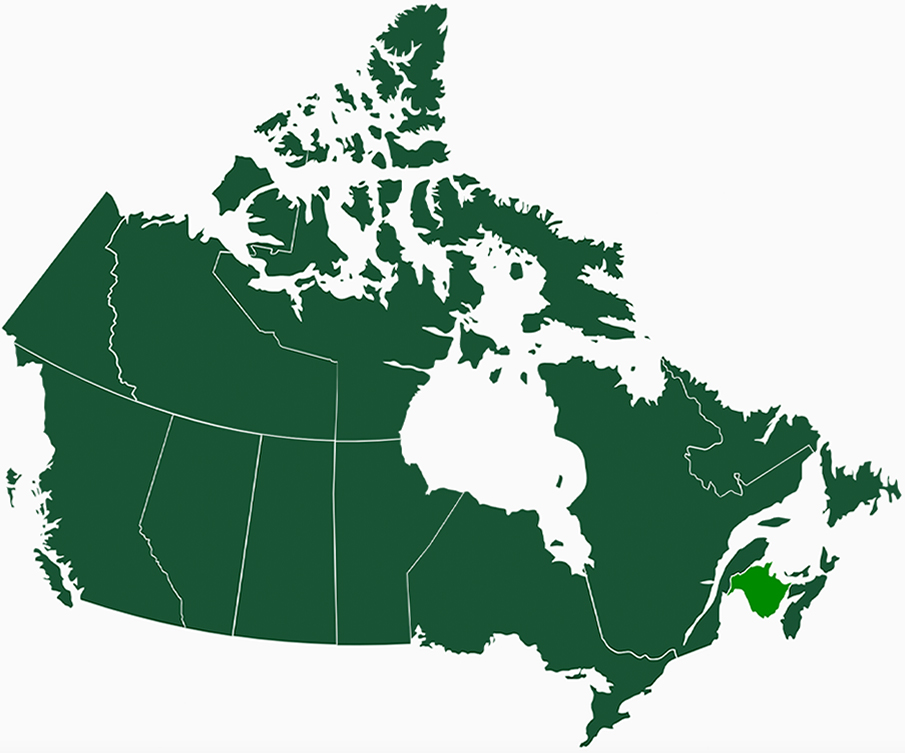
New Brunswick
While New Brunswick’s government currently doesn’t offer rebates for home EV charging stations, electric or plug-in hybrid car owners in the province can benefit from the federal iZEV program. This program provides substantial rebates, up to $5,000, for the purchase or lease of a Zero-emission vehicle (ZEV).
1. Canada-wide Zero-emission Vehicles (ZEV) Program
The Canadian federal government provides rebates as high as $5,000 for those purchasing or leasing qualified zero-emission vehicles (ZEV).
ZEVs include:
Battery-electric vehicles
Plug-in hybrid electric vehicles
Hydrogen fuel cell vehicles
Rebates vary based on the vehicle:
Vehicles with an electric battery, hydrogen fuel cell, or long-range plug-in hybrid (battery capacity of 15 kWh or more) can get a rebate of up to $5,000.
Short-range plug-in hybrid vehicles (battery capacity less than 15 kWh) can receive up to $2,500 in rebates.
For detailed information, consult the Government of Canada’s official website.
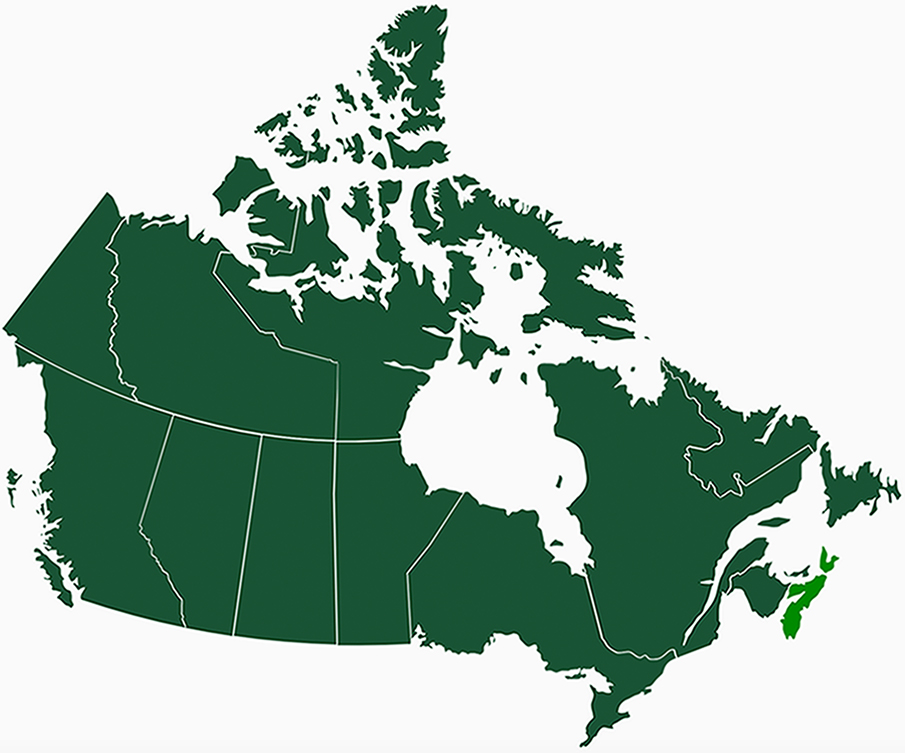
Nova Scotia
Nova Scotia is taking significant steps to promote the advantages of electric vehicles and is actively exploring strategies to boost their adoption in the province. Discover the latest initiatives below:
1. EV BOOST
The EV BOOST program assists eligible organizations in Nova Scotia with the installation of level 2 chargers. With financial backing from the Zero Emission Vehicle Infrastructure Program (ZEVIP) managed by Natural Resources of Canada (RNCan), the Clean Foundation is spearheading the initiative to facilitate the installation of up to 250 EV charging stations. Starting February 7th, 2022, they began accepting proposals, aiming to expand the EV charging infrastructure across the province.
Where can these charging stations be installed?
-
Workplace premises
-
Multi-unit residential buildings (MURBs)
-
Public access areas
-
Street-side locations
To delve deeper into this initiative, check out the comprehensive press release here.
For any inquiries regarding the EV Accelerator program, reach out to evaccelerator@cleanfoundation.ca.
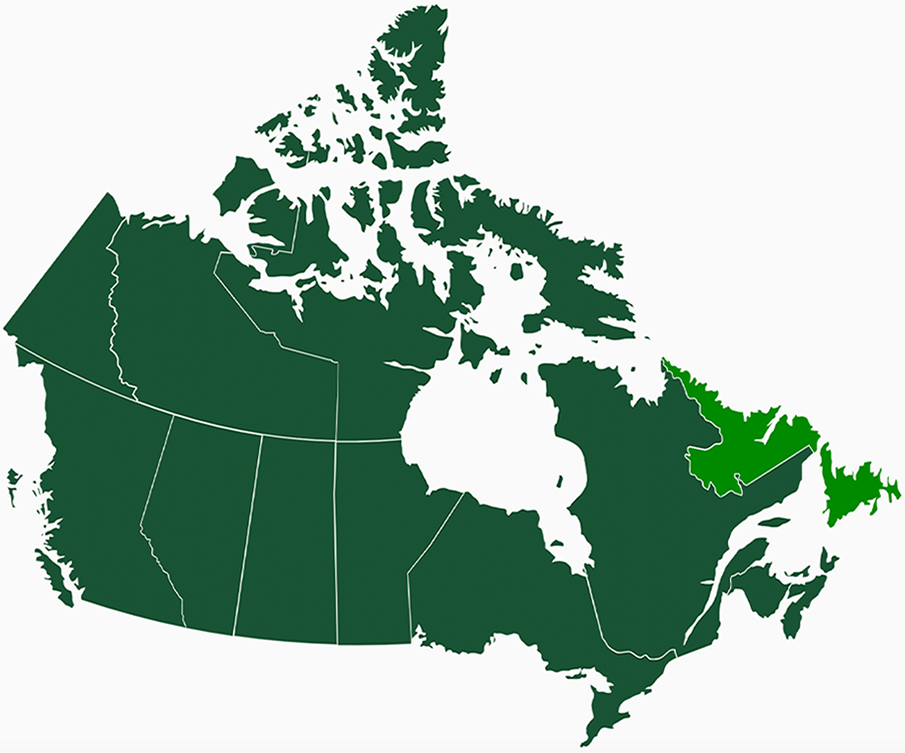
Newfoundland and Labrador
While Newfoundland and Labrador don’t offer provincial incentives for installing EV home charging stations, the Canadian Federal Government does provide assistance to lower the initial cost of acquiring an EV via its Zero-emission Vehicle (ZEV) initiative.
1. Nationwide Zero-emission Vehicles (ZEV) Initiative
Canada’s federal government provides rebates up to $5,000 for Canadians purchasing or leasing qualified zero-emission vehicles (ZEV).
The recognized ZEVs include:
Battery-electric
Plug-in hybrid electric
Hydrogen fuel cell
The rebate breakdown is as follows:
Cars with electric batteries, hydrogen fuel cells, and long-range plug-in hybrids qualify for up to a $5,000 rebate.
Shorter-range plug-in hybrids can receive up to a $2,500 rebate.
For detailed information, please refer to the Government of Canada’s official website.
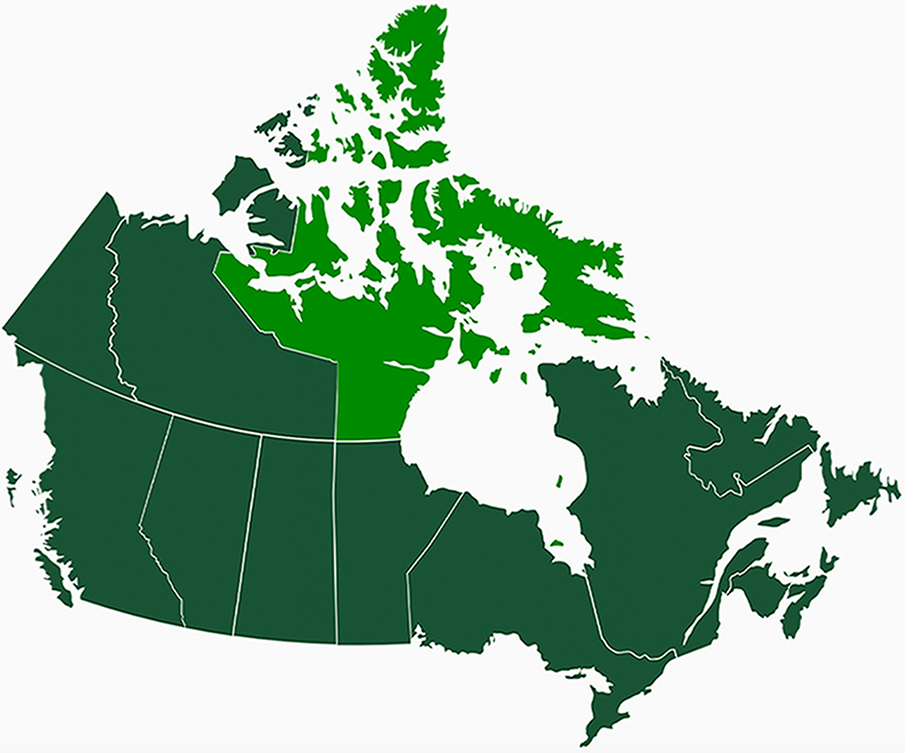
Nunavut
In Nunavut, there aren’t any specific grants available for installing home EV charging stations at the moment.
Nonetheless, the federal government provides incentives to those opting to purchase or lease qualified zero-emission vehicles (ZEV).
Two different rebates are available:
1. Vehicles equipped with electric batteries, hydrogen fuel cells, or long-range plug-in hybrids (having a battery capacity of 15 kWh or above) can qualify for a rebate of up to $5,000.
2. Plug-in hybrid vehicles with a shorter range (battery capacity below 15 kWh) can avail a rebate of up to $2,500.
To gather more details, check the official website of the Government of Canada.
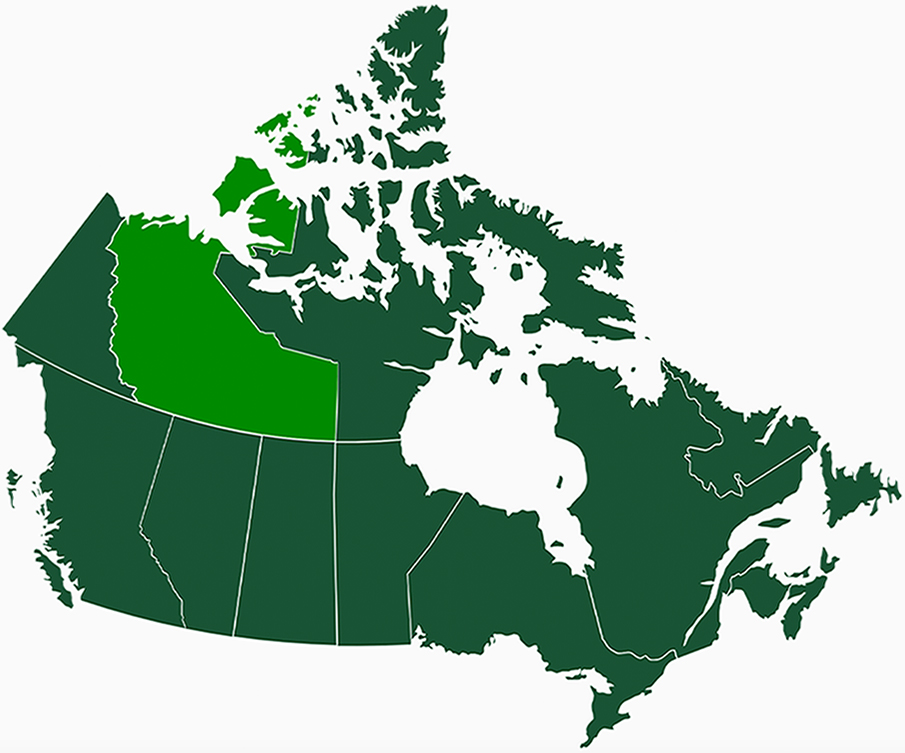
Northwest Territories
The Arctic Energy Alliance (AEA) offers incentives in the Northwest Territories (NWT) to lower the expenses associated with acquiring and operating electric vehicles (EV) and their related charging infrastructure.
1. AEA’s Rebate Program for Electric Vehicles & Charging Infrastructure
The Arctic Energy Alliance (AEA) encourages the residents of NWT to adopt electric vehicles as a means to decrease the greenhouse gas emissions typically produced by gasoline-fueled vehicles. This incentive program caters to communities connected to NWT’s hydro-electric grid, including Behchoko, Dettah, Enterprise, Fort Resolution, Fort Smith, Hay River, Kátł’odeeche, N’dilo, and Yellowknife.
The rebate program offers two primary incentives:
For Eligible Parties (individuals, businesses, not-for-profits, community, and Indigenous governments):
Battery Electric & Plug-in Hybrid Vehicles:
Receive a rebate of up to $5,000 when purchasing a new battery electric vehicle (BEV) or a plug-in hybrid electric vehicle (PHEV).
Charging Stations:
A rebate of up to $500 is available for acquiring a Level 2 charger (220 or 240 volts).
Application Process:
Before acquiring your electric vehicle or Level 2 charging station, fill out the application form and forward it to AEA.
Post-purchase (within 3 months), send the following to AEA:
Your purchase agreement, lease document, or payment receipt (relevant to both vehicles and charging infrastructure)
Proof of NWT vehicle registration and insurance (only for vehicles)
Your pre-approved and signed application form (ensure your signature is on the designated space on the third page)
For a comprehensive understanding of the rebate program, visit the Arctic Energy Alliance website.
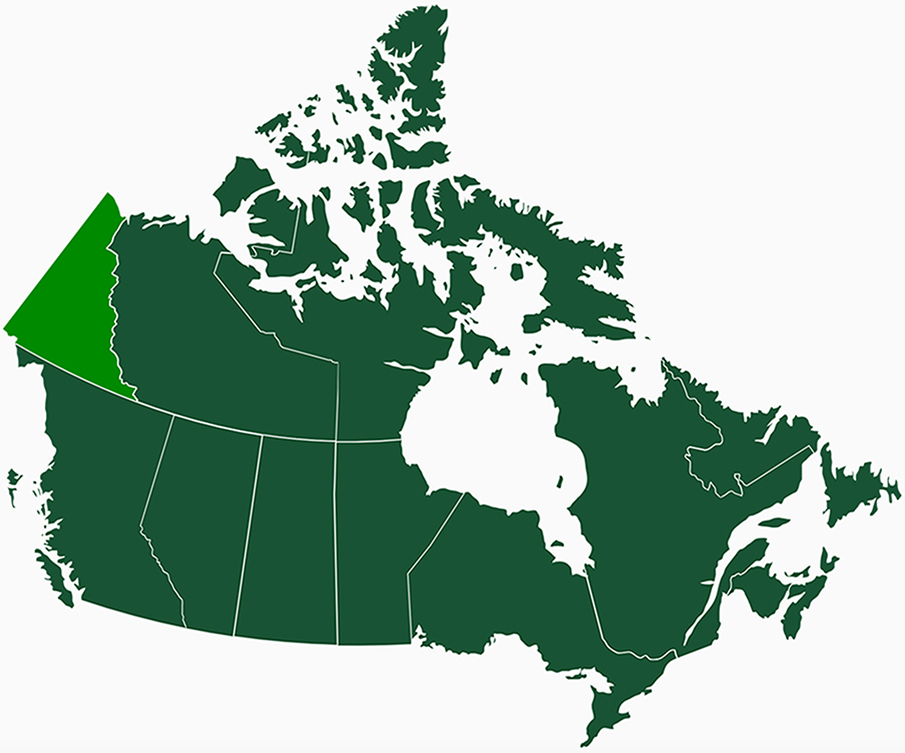
Yukon
In an effort to diminish its carbon footprint, the Government of Yukon has introduced EV rebates this year. Yukon residents can avail these rebates on EV charging stations as well as on zero-emission vehicles, which encompasses recreational vehicles too.
1. Good Energy Rebates – Offered by the Yukon Government
Consider securing a rebate when installing a Level 2 electric vehicle charger on your property.
The following properties qualify for the EV rebates:
Individual houses, duplexes, triplexes, and mobile homes:
Get a rebate covering 50% of both the purchase and installation fees, capped at $750, for a Level 2 EV charging station installed in private residences.
Multi-residential, commercial, or institutional structures, encompassing buildings owned by municipal or First Nations governments:
Avail a rebate that covers 75% of the purchase and installation expenses, with a limit of $7500 per Level 2 charger.
Municipal and First Nations government facilities.
The rebate extends to 90% of the costs related to the purchase and installation of a Level 2 charger, with an upper limit of $9,000 per charging station.
To qualify, the Level 2 charging stations should meet these criteria:
Have WiFi capability.
Be furnished with a 240-volt plug delivering an output power ranging between 3 kilowatt and 20 kilowatt.
For a comprehensive understanding of these rebates, please refer to the Yukon Government’s official resources.

Prince Edward Island
In Prince Edward Island, while there isn’t a subsidy available for home charging stations, there are some perks for electric vehicle owners. The province has eliminated the registration fee for electric cars, which translates to an annual savings of $100. Additionally, there’s a 50% discount on vehicle registration charges.
1. Zero-emission vehicles help fight climate change
On Prince Edward Island, residents can take advantage of the ZEV incentive program provided by the federal government of Canada. Through this initiative, Canadians can receive substantial financial benefits when they buy or lease vehicles classified as zero-emission (ZEVs). The vehicles recognized as ZEVs by the Canadian government include:
Vehicles powered by batteries
Vehicles with plug-in hybrid electric capabilities
Vehicles operating on hydrogen fuel cells
For a deeper understanding, check out the official website of the Government of Canada.